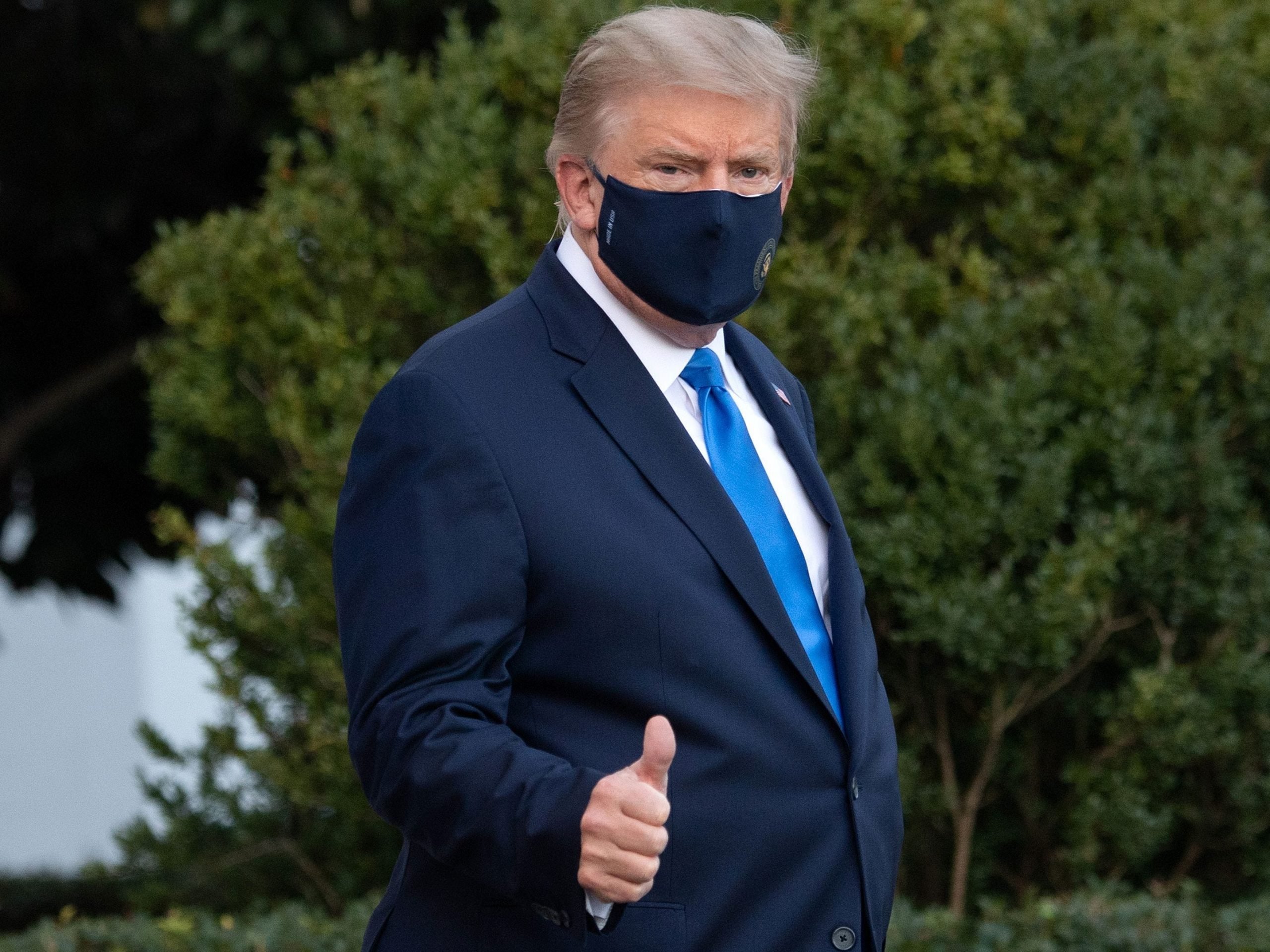
SAUL LOEB/AFP via Getty Images
- President Donald Trump walked across the White House lawn to a helicopter which took him to Walter Reed Medical Center on Friday, after he tested positive for the coronavirus.
- One White House official told The New York Times it was better to hospitalize Trump while he could still walk, to avoid publicly assisting him if his condition deteriorates.
- The president’s hospitalization could point to his symptoms already worsening.
- Visit Business Insider’s homepage for more stories.
A masked President Donald Trump walked across the White House lawn, gave a thumbs up to onlookers, and boarded a helicopter for Walter Reed Medical Center on Friday evening.
Earlier that day, Trump and First Lady Melania Trump had announced they tested positive for the coronavirus.
The president had also developed a fever, cough, congestion, and fatigue by the time he was admitted to the hospital, aides told The New York Times.
Trump will be staying at Walter Reed for “the next few days,” the White House said in a statement, adding that the decision came “out of an abundance of caution.”
But one unnamed administration official told the Times that it was better for Trump to leave while he could still walk to avoid the president being publicly assisted out of the White House if his condition turns severe.
If Trump gets better, the hospital stay will have ultimately been "inconsequential politically," the Times' Peter Baker and Maggie Haberman wrote.

Joshua Roberts/Reuters
"I think I'm doing very well, but we're going to make sure that things work out," Trump said in a brief video message shared Friday before he was hospitalized.
Hospitalization could point to worsening symptoms
Trump is a 74-yeas-old obese male — all factors that substantially increase his likelihood of severe illness and death from the coronavirus. The early hospitalization could be a sign that his condition has already begun to deteriorate, experts said.
"It might mean he's now sleepy or confused... or, more likely, short of breath, cough and/or low oxygen level, indicating lung involvement," Bob Watcher, Chair of the Department of Medicine at University of California San Francisco, tweeted on Friday. "Yes, the threshold to hospitalize the president is probably lower than for average person, but still – it's not good."
At this point, Watcher estimated the president's risk of death to be greater than 10%.

Jabin Botsford/Getty Images
At Walter Reed, Trump has received his first dose of the anti-viral drug remdesivir, White House physician Sean Conley said in a memo Friday night.
Remdesivir, developed by biotechnology giant Gilead Sciences, is given as a five-day or 10-day infusion. Studies have shown that it can help hospitalized patients with COVID-19 recover faster than they do with a placebo.
Before leaving for the hospital, Trump also received an injection of Regeneron's experimental antibody drug, according to Conley.
